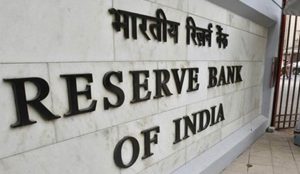Latest news about Bitcoin and all cryptocurrencies. Your daily crypto news habit.

Cryptocurrency exchange Belfrics has resumed trading operations in India after halting earlier this year due to banks refusing to provide payments solutions to the exchange. Belfrics has also added four more cryptocurrencies to its platform, with 20 more planned for the next six months.
Also read: Yahoo! Japan Confirms Entrance Into the Crypto Space
Belfrics Resumes Trading Operations in India
 Belfrics, which claims to be “India’s fastest growing cryptocurrency exchange and blockchain development platforms,” announced on Tuesday that it has resumed trading operations in India. The exchange also said that it has added four new coins to its platform: bitcoin cash (BCH), ether (ETH), ripple (XRP), and litecoin (LTC). Prior to the additions, only BTC trading was available. The company further unveiled its plan to launch 20 new cryptocurrencies in the next 6 months.
Belfrics, which claims to be “India’s fastest growing cryptocurrency exchange and blockchain development platforms,” announced on Tuesday that it has resumed trading operations in India. The exchange also said that it has added four new coins to its platform: bitcoin cash (BCH), ether (ETH), ripple (XRP), and litecoin (LTC). Prior to the additions, only BTC trading was available. The company further unveiled its plan to launch 20 new cryptocurrencies in the next 6 months.
Jabeer KM, the COO of Belfrics Group, commented:
India is a key market for us when it comes to crypto trading. With the launch of these new coins we are targeting a base of at least 2,500,000 new traders on our platform by December 2018.
 In addition, the exchange has also launched “a dedicated app for live order-book trading of various altcoins.” The group’s Chief Innovation Officer, Santhosh Palavesh, explained that “traders can now securely link their assets with our Belfrics wallet…The new app will be available for both Android and iOS users.”
In addition, the exchange has also launched “a dedicated app for live order-book trading of various altcoins.” The group’s Chief Innovation Officer, Santhosh Palavesh, explained that “traders can now securely link their assets with our Belfrics wallet…The new app will be available for both Android and iOS users.”
Founded in 2014 and headquartered in Kuala Lumpur, Malaysia, Belfrics Group operates crypto exchanges in Malaysia, Singapore, Bahrain, Kenya, Nigeria, Tanzania, and India. The company has its development center in the Indian city of Bengaluru. Starting this month, traders can also enjoy crypto-to-crypto trading on its platform.
Problems with Banks and RBI Ban
Belfrics halted its crypto exchange operations in India in early January when the banks stopped providing payments solutions to the company, Inc42 described. Praveenkumar Vijayakumar, Belfrics Group’s founder and CEO, told the news outlet at the time that “Many payment service providers (PSP) [in India] have stopped giving services to [crypto] exchanges.”
 In April, the Reserve Bank of India (RBI) issued a circular banning banks and financial institutions under its control from providing services to crypto companies. “Before taking this decision, industry participants were not consulted, public debates were not initiated and public opinion polls were not undertaken. Even the findings of the committee were not published,” the CEO told Indian news service Ians. Recently, the central bank admitted that it issued the ban without proper research.
In April, the Reserve Bank of India (RBI) issued a circular banning banks and financial institutions under its control from providing services to crypto companies. “Before taking this decision, industry participants were not consulted, public debates were not initiated and public opinion polls were not undertaken. Even the findings of the committee were not published,” the CEO told Indian news service Ians. Recently, the central bank admitted that it issued the ban without proper research.
Regarding RBI’s ban, Jabeer KM elaborated in Tuesday’s announcement:
We understand that the RBI has reservations on trading in cryptocurrencies and digital currencies. But we are confident that they will be coming up with their own set of regulations for this industry. From our end, we are making sure that Belfrics Group is ready with multiple options for our Indian customers when crypto trading becomes regularized.
Since the RBI’s circular was issued, crypto industry participants have petitioned with the Supreme Court, challenging the ban. The Supreme Court reportedly agreed to hear the cases on July 3, earlier than the original date of July 20. The RBI ban is supposed to take effect on July 5. Meanwhile, the government plans to wrap up cryptocurrency regulations in the middle of next month.
What do you think of Belfrics resuming trading operations in India despite problems with banks and impending RBI ban? Let us know in the comments section below.
Images courtesy of Shutterstock and Belfrics.
Need to calculate your bitcoin holdings? Check our tools section.
Disclaimer
The views and opinions expressed in this article are solely those of the authors and do not reflect the views of Bitcoin Insider. Every investment and trading move involves risk - this is especially true for cryptocurrencies given their volatility. We strongly advise our readers to conduct their own research when making a decision.